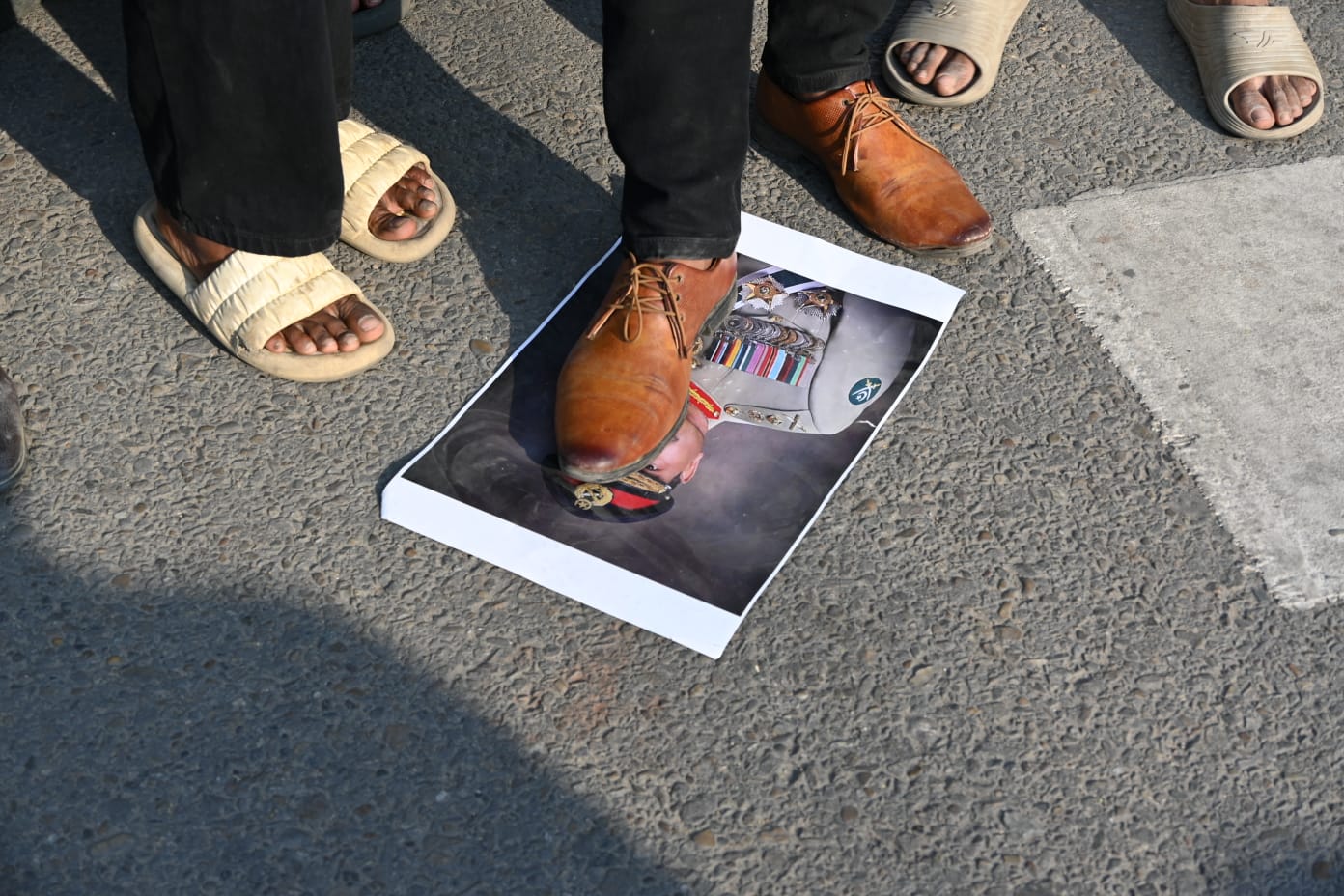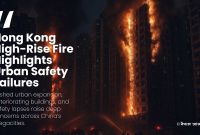Pakistan EXPLODING? Baloch Volcano Threatens Collapse, China's Billions at Risk!

By Anil Tiwari
Insurgency has gained momentum in Balochistan. Rebel groups now pose a significant challenge to the decades-long suppression inflicted by the Pakistani army on its own citizens. Recently, anti-government militant organizations in Pakistan have increased coordination and intensified attacks, challenging the Pakistani army and pushing the country towards instability.
The insurgency that has flared up in Balochistan in recent years is becoming increasingly ominous for Pakistan. Islamabad's situation resembles 'Nero fiddling while Rome burned.' The central government is yet to realize the gravity of the situation. Complaints are growing within Pakistan that the government has failed to show seriousness towards the conditions in Balochistan, its largest province by area.
The fire of militancy has been simmering in Balochistan for a long time. This volcano of insurgency is becoming more terrifying day by day. The current situation in Pakistan's largest province is hidden from no one. Not just Pakistan, but the entire global community's attention is focused on Balochistan. Although the Pakistani media censors news, reports emerging in international media outlets have exposed the reality of Balochistan.
However, only one thing seems to matter in Pakistan's capital: controlling government institutions. As all government institutions in Pakistan are controlled by the Pakistani army, the focus appears to be on saving the existence of the Pakistani democratic government run by this military hybrid, which is reportedly operated, directly or indirectly, according to the wishes of General Asim Munir.
Pakistan seems largely oblivious to the fires of rebellion rising from Balochistan, Khyber Pakhtunkhwa, Sindh, and Pakistan-occupied Kashmir (PoK).
The Pakistani media still gives more coverage to Imran Khan than to Balochistan. Their news priorities are dominated by discussions about the imprisoned Imran Khan, rather than the inferno raging in Balochistan. What did Imran say? How difficult is his life in jail? Analysis tends to focus on these aspects.
It is said that the government and the army are entangled in neutralizing the popularity and narrative that Imran Khan has built not only in cricket but also in Pakistan's political sphere. Pakistani media outlets often follow the government's propaganda line regarding its future policies on Khan's political activities.
Since Pakistan's inception, Balochistan has been drifting away from Islamabad and Lahore. Until a few years ago, Islamabad was not particularly concerned about the turmoil and explosive incidents occurring in the mountainous areas of Balochistan.
But a few months ago, Jamiat Ulema-e-Islam leader Maulana Fazl-ur-Rahman, speaking in Pakistan's National Assembly, stated, 'Five to seven districts of Balochistan are on the verge of declaring themselves independent from Pakistan,' and 'Immediately after their declaration, there is a situation where the United Nations might grant them recognition as a new nation without delay.'
Maulana Fazl-ur-Rahman's statement jolted the Pakistani public and those in government positions, highlighting the deteriorating situation caused by the exploding volcano of insurgency in Balochistan. However, Pakistani media accuses the Maulana of being overly sentimental when describing the situation, especially regarding the claim about the UN granting independence.
Nevertheless, many believe that what Maulana Fazl-ur-Rahman raised in parliament reflects the ground reality in Balochistan. Because Maulana Rahman is a religious leader who knows Balochistan well, he is considered well-informed about all ongoing activities there.
Following Maulana Fazl-ur-Rahman, Opposition Leader in the National Assembly, Omar Ayub, also drew attention to the fact that half a dozen districts in Balochistan have slipped out of Pakistan's control. According to Omar Ayub's statement in parliament, the Pakistani flag has been removed and the Balochistan flag has been hoisted in all these districts.
Balochistan's 'Rebellion'
It's not that army-controlled officials haven't expressed concern about the deteriorating situation in Balochistan. Rana Sanaullah, a former Interior Minister and one of Prime Minister Shehbaz Sharif's personal advisors, had also warned the government about Balochistan much earlier. He had raised the issue of armed organizations coming down from the mountains and establishing their dominance over Balochistan long ago.
Initially, government officials held traditional views about Balochistan, detached from reality. But when Balochistan's Chief Minister Sarfaraz Bugti stated that the province's situation had become very dangerous, it naturally increased the government's concern in Pakistan.
Although the insurgents have not been able to establish permanent control over any area except for a few days or hours, Baloch militants have inflicted significant damage on the Pakistani army and other government security forces by attacking major highways, railways, or airports and holding them for a few hours.
This has created psychological fear within the Pakistani army. It would be a huge loss for Pakistan if responsible administrators take this lightly.
Several major attacks carried out successively by Baloch insurgents have dealt significant blows to the Pakistani government and army. It has deeply wounded the government and the crumbling Pakistani economy.
The large-scale attacks by insurgent organizations have increased uncertainty in the country. This poses a major challenge to infrastructure and ambitious plans like foreign investment in ongoing development and mining projects in Balochistan (especially projects under China's Belt and Road Initiative).
Considering the circumstances, four local insurgent organizations – Baloch Liberation Army (BLA), Balochistan Liberation Front (BLF), Balochistan Republican Guard (BRG), and Sindhudesh Revolutionary Army (SRA) – under the unified command of their joint organization Baloch Raji Aajoi Sangar (BRAS), have announced the formation of a Baloch National Army. They have declared their intention to fight for Balochistan's independence through organized, decisive battles and attacks, rather than separate minor skirmishes.
This constitutes a declaration of war against Pakistan and its biggest patron, China. Attacks are set to become more aggressive, and guerrilla campaigns more lethal. BRAS has decided to deal major blows to Pakistan and China, including 'blockading all major highways in Balochistan and prohibiting external movement aimed at occupying the land from outside.' Furthermore, the insurgents' policy is to harm all activities related to governmental 'economic and military' interests.
New Wave of Insurgency in Pakistan
Recently, several insurgent attacks have caused significant damage to Pakistani security forces. In early February (2025), insurgents carried out a deadly ambush on an army vehicle in Kalat, killing 17 Pakistani soldiers. Less than two weeks later, another 17 Pakistani soldiers were killed in an attack on a Pakistani army post and a convoy in the Mand area.
Insurgents also targeted a bus carrying laborers for the Harnai mine, resulting in 11 deaths. Such incidents are on the rise, raising serious questions about Pakistan's security apparatus and stability.




![From Kathmandu to the World: How Excel Students Are Winning Big [Admission Open]](https://www.nepalaaja.com/img/70194/medium/excel-college-info-eng-nep-2342.jpg)
